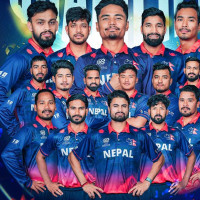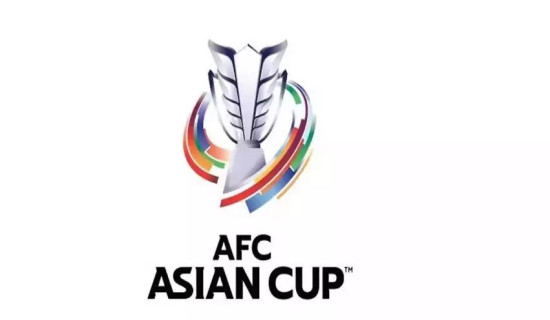- Friday, 17 October 2025
Nepal's Chaotic Sports Calendar
After the first National Games kicked off in 1982 from Kathmandu, the second and third editions of the biennial tournament reached Pokhara and Birgunj in 1984 and 1986. However, the fourth and fifth editions had to wait over a decade each as they were organised in 1999 and 2009, respectively.
While 20+ editions of the National Games should have been completed by now, Nepal is hosting the 10th edition in November 2024. Meanwhile, as the 10th edition nears, organising the tournament at the designated time seems more unlikely.
Since the formation of seven provincial governments in 2015, the government of Karnali, then Province No. 7, has been trying to develop the remotest province in Nepal. Five years later, they planned to utilise sports as the few provincial athletes showed promising results in different tournaments.
On December 6, 2021, the Karnali government laid the foundation stone for a multi-purpose Karnali Stadium in Surkhet. A year later, Karnali was handed over the flag of the National Games by Gandaki Province, the host of the 9th National Games, in Pokhara in 2022.
Two days after the conclusion of the 9th edition, the Ministry of Youth and Sports fixed the 10th National Games in Karnali for November 17-24, 2024. “The date has been revealed beforehand, so it is easier to prepare for the tournament as the National Games should be on schedule,” then Minister for Youth and Sports Maheshwar Jung Gahatraj had assured journalists in Pokhara.
Three ministers have shared their turns two years after Gahatraj left, and so have been changes in the leadership of the Karnali Province government in the same period. But thousands of athletes who are waiting for the 10th National Games are still left in confusion.
According to the National Sports Council (NSC), 6,157 athletes from 11 teams competed in 36 sports during the 9th National Games. In two years, Karnali was tasked with completing Karnali Stadium and preparing infrastructure enough for sporting events included in the 9th edition, except paragliding. Thus, for 35 sports.
On the other hand, Karnali Province has stated that it could prepare infrastructure for only 24 sports in eight districts. Therefore, the sports authorities, namely the Ministry of Youth and Sports and the National Sports Council, should now decide on the number of sporting events for the 10th edition. They are free to designate sports infrastructure outside Karnali for the remaining sports as well.
Nevertheless, while neither the number of sports nor their venues have been decided, the authorities cannot ascertain if the 10th National Games will be inaugurated at the designated time.
Ten teams, three departmental (Army, APF, Police) and seven provincial, are most likely to participate in the 10th edition. Departmental teams have their players trained regularly, but the provincial players do not share such a benefit.
Moreover, the government has also made a statement to organise the 1st National Para Games alongside the 10th National Games, but the authorities have not revealed the number and name of sports events and the date to organise the event for para-athletes.
For instance, the provincial teams (Koshi, Karnali, and Sudurpashchim) had called women footballers for a closed camp for the ANFA Women’s League 2081, which kicked off on September 1 only a week prior. As per the provincial coaches, it was a result of the lack of chances of the league taking place on the designated date.
Condition of sports calendar
The sports calendar is a crucial tool that outlines scheduled events, matches, and tournaments, ensuring that athletes, teams, and fans are well-informed about upcoming competitions and deadlines throughout the season.
In recent years, the condition of the sports calendar in Nepal has been increasingly chaotic and inconsistent. This disarray is characterised by frequent delays, last-minute changes, and a lack of coordination among stakeholders.
These issues have disrupted the preparation and participation of athletes in various national and international events, leading to frustration among sports communities.
The absence of a well-maintained and reliable sports calendar reflects broader challenges in the country's sports management, where insufficient planning and organisational inefficiencies are prevalent. This situation also underscores the need for a more robust and transparent system to ensure the smooth execution of sporting activities across the nation.
Implementation of calendar
The NSC upgraded its website in June and inducted the list of sports associations, their details, and calendars. Of the 61 sports associations registered with the NSC, 41 associations have assured 122 national-level tournaments, while 38 associations planned 68 international events in Nepal for the fiscal year 2024/25. The NSC itself has proposed at least 11 events.
As per the NSC, 20 sports associations have not formed a calendar and forwarded it to the Council as they were yet to conduct their elections. But the NSC states that it had no plans to either question or take action against the associations failing to bring a calendar.
The authorities also seem to turn a blind eye to the impact of the lack of tournaments for athletes and officials associated with the game.
When the Minister of Youth and Sports and the NSC member secretary were asked about the authorities’ plan against associations remaining inactive and hampering the lives of athletes, they simply stated to ‘consult’ and kept the thought of strict action at bay.
Room for improvement
Nepal already has a centralised sports authority, the NSC, to oversee and coordinate the calendar across all sports. The NSC also has a digital platform for scheduling with regular updates and notifications to keep all stakeholders informed and aligned.
However, there is often a lack of advanced planning and public transparency leading to last-minute changes. Without any penalties for non-compliance, the scenario keeps on repeating.
Thus, involving all stakeholders in the planning process ensures that potential conflicts are addressed early and contingency plans can help mitigate disruptions. Additionally, training workshops for organisers and a feedback mechanism for continuous improvement can strengthen the system. These steps will collectively help maintain a more reliable and effective sports calendar in Nepal.
(Paudel is a sports journalist for The Rising Nepal.)



-original-thumb.jpg)













